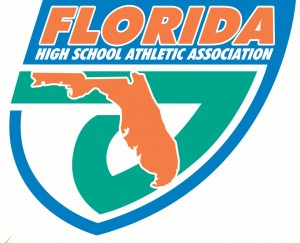Ohio State Receives 1-Year Bowl Ban
http://www.cleveland.com/osu/index.ssf/2011/12/ohio_state_buckeyes_football_p_4.html
The severe penalties have surprised OSU, which had hoped something close to its self-imposed sanctions would be enough to satisfy the committee.
The bowl ban will take place in the 2012 season, which means the Buckeyes will play in the Gator Bowl on Jan. 2 as planned.
The school had chosen to not self-impose a bowl ban this year while believing that case precedent would prevent a bowl ban in the future. According to conference rules, the bowl ban will also keep the Buckeyes from playing in the Big Ten Championship game in 2012.
The last postseason ban handed down to a major-college football team was the two-year ban given to USC in June of 2010 over the benefits provided to Heisman Trophy winner Reggie Bush by an agent.
“My primary concern, as always, is for our students, and this decision punishes future students for the actions of others in the past,” said Smith. “Knowing our student-athletes, however, I have no doubt in their capacity to turn this into something positive – for themselves and for the institution. I am grateful to our entire Buckeye community for their continued support.”
Initial reaction from several football players, writing on Twitter, was of shock and disappointment.
In addition, Ohio State will lose nine scholarships – four above what it had self-imposed – over the 2012, 2013 and 2014 seasons. Those losses are enough to affect the recruiting of new coach Urban Meyer.
Ohio State had hoped its previously self-imposed sanctions might be enough to satisfy the committee. Those included a loss of a total of five scholarships over three years; vacating the 2010 season; returning $338,811, which was the school’s payout from the Big Ten for its Sugar Bowl appearance last season; and two years of probation.
The ruling drew some precedent from the two-year bowl ban received by Alabama in 2002. In that case, Alabama was cited for major recruiting violations that included the coach of recruit Albert Means allegedly receiving more than $100,000 from an Alabama booster. That ruling shocked the Crimson Tide at the time, with the school president saying the penalties were inappropriate.
The school appealed the sanctions, but the appeal was denied. Alabama also was a repeat violator in that case, which also came into play in this Ohio State ruling because it came within the five-year time period the school also dealt with penalties for violations in its football and basketball program.
The Committee on Infractions also penalized former Ohio State coach Jim Tressel for his unethical conduct violations while running the OSU program. He was given a five-year show-cause penalty, which would cause any school that hires Tressel over the next five years to deal with NCAA issues that would follow him as a result of his actions with the Buckeyes. The result of the penalty is that coaches are typically viewed as almost unhireable.
Ohio State’s hope was that was by forcing Tressel to resign, it would be able to place much of the blame for the school’s NCAA troubles on the former coach and have him absorb the brunt of the penalties. In its response to the NCAA, Ohio State had cited Tressel’s forced resignation on May 30 as one of the sanctions felt by the school. Ohio State has bounced back from that move by hiring two-time national championship coach Urban Meyer, after going 6-6 this season under replacement Luke Fickell.
With the coaching situation resolved, Meyer hit the recruiting trail hard and recently pulled in three new highly ranked recruits, bringing the 2012 class to 19 oral commitments, as it moved into the top 10 nationally according to most recruiting services. While meeting with reporters on Monday, Meyer explained again that he didn’t receive any assurances about NCAA sanctions before taking the job, but he had the impression they wouldn’t be too harsh.
“It is still my goal to hire excellent coaches, recruit great student-athletes who want to be a part of this program and to win on and off the field,” Meyer said in a statement released by Ohio State today. “The NCAA penalties will serve as a reminder that the college experience does not include the behavior that led to these penalties. I expect all of us to work hard to teach and develop young student-athletes to grow responsibly and to become productive citizens in their communities upon graduation.”
Meyer’s hiring had Ohio State fans feeling good after a tough year on and off the field, but this should bring them back to earth a bit.
The problems for the program first started almost as a year ago, with a news conference on Dec. 23 that announced the five-game suspensions for five players involved in trading memorabilia for cash and tattoos.
Then came a March news conference when it was revealed that Tressel had been aware of potential violations involving those players. On May 30, Tressel was forced to resign. And in July, Ohio State self-imposed several penalties and mentioned Tressel’s ouster as one step the school had already taken.
The school’s hearing in Indianapolis before the Committee on Infractions on Aug. 12 lasted just four hours, which was generally taken as a good sign. But then came news of more violations regarding benefits received by players from booster Bobby DiGeronimo, discoveries announced after the season started. That delayed the final ruling from the Committee on Infractions, as it folded those charges into the overall case.
Ohio State was hit with a more serious “failure to monitor” charge from the NCAA over those actions, and that is when the school added the loss of five scholarships in its self-imposed penalties.
On Dec. 10, the Committee on Infractions discussed Ohio State again at its scheduled meeting in Florida, though the school did not send representatives to appear before the committee since there was agreement on the facts of the case.
Ohio State expected a final ruling 10 to 14 days after that, which brought us to today.
And though Ohio State is done dealing with NCAA, the penalties will remind the Buckeyes of what happened in the past.







